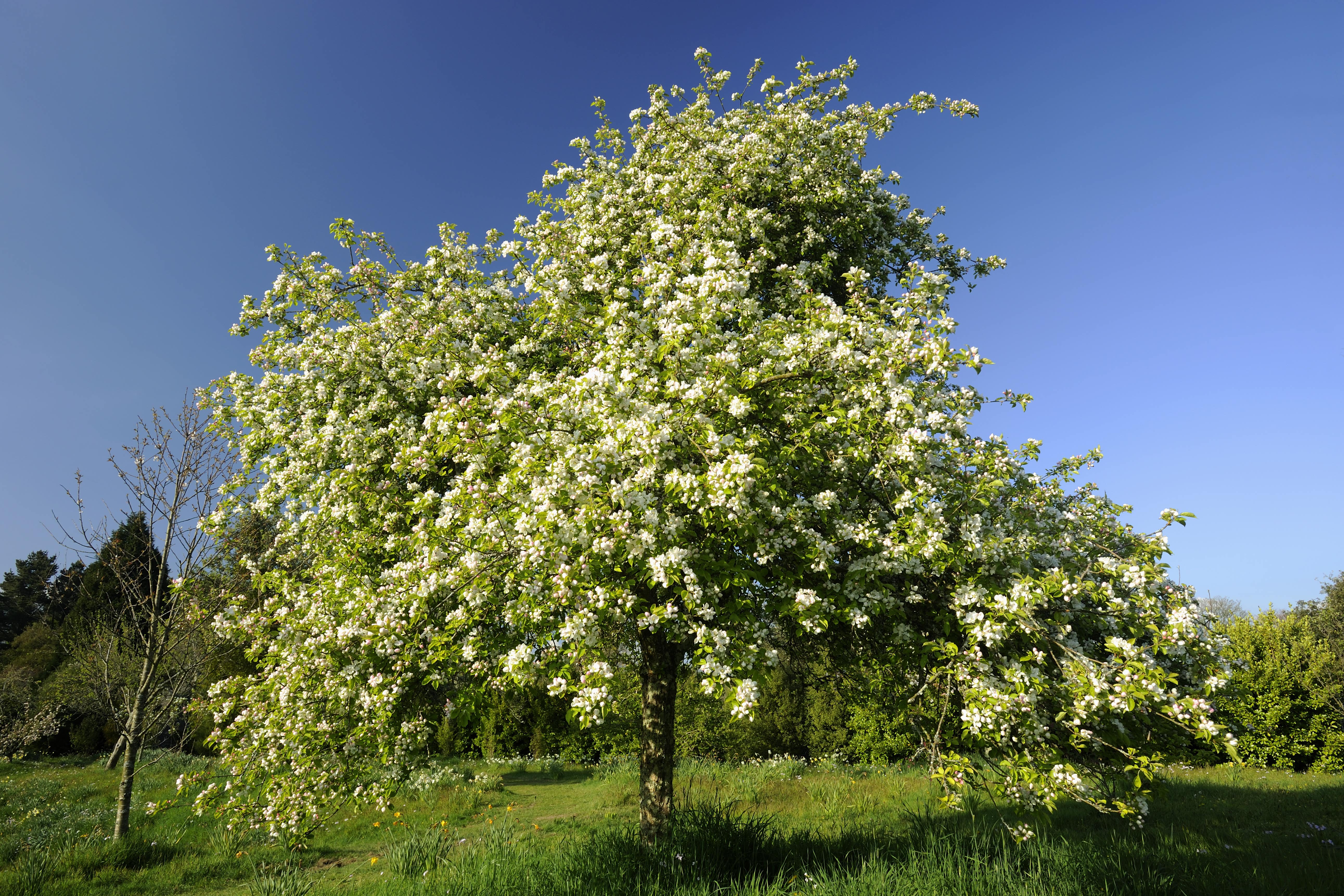Ghosts of ‘lost’ blossom and orchards haunt street and place names, study shows
The proportion of place names linked with blossom has doubled in past century despite flowering trees disappearing across the landscape.

Your support helps us to tell the story
From reproductive rights to climate change to Big Tech, The Independent is on the ground when the story is developing. Whether it's investigating the financials of Elon Musk's pro-Trump PAC or producing our latest documentary, 'The A Word', which shines a light on the American women fighting for reproductive rights, we know how important it is to parse out the facts from the messaging.
At such a critical moment in US history, we need reporters on the ground. Your donation allows us to keep sending journalists to speak to both sides of the story.
The Independent is trusted by Americans across the entire political spectrum. And unlike many other quality news outlets, we choose not to lock Americans out of our reporting and analysis with paywalls. We believe quality journalism should be available to everyone, paid for by those who can afford it.
Your support makes all the difference.The orchards and blossoming trees lost from the landscape are enduring through place and street names, a study suggests.
The proportion of street and place names linked to blossom has doubled in the past century, despite a loss of more than half of orchards in that time, the research from the National Trust shows.
The research forms part of its “blossom week” celebrations, and the charity says it shows a connection to orchards and blossoming trees even as they have been lost across England and Wales.
The study revealed that of the 912,000 place and street names recorded in survey areas across England and Wales, around 51,000 or 6% were found to be associated with blossom, including terms like orchard, apple, petal, bloom, as well as grove and copse.
That compares to 3%, or 23,000 of the 700,000 street and place names in 1900, the research found.
At the same time 56% of traditional orchards and their blossoming trees in England and Wales have been lost since 1900, leaving just 4,017 hectares (9,926 acres) still growing today, the National Trust said.
More than half (52%) the street and place names on maps today that are orchard-related are located close to the site of an orchard that has been lost since 1900, and not near an surviving one, the study found.
In these cases the name is acting as “fossil blossom”, preserving the memory of a lost orchard – and could help point a way to bring back blossoming trees to local areas, the National Trust suggested.
Professor Matthew Heard, head of environmental research and data at the National Trust, said: “Over the last century, blossom has been disappearing from our landscapes.
“Since 1900, half of our traditional orchards – and their blossoming trees – have been lost across England and Wales.
“But despite this, we clearly haven’t lost our connection to them – their memory is something we seem to want to keep alive.
And he said: “What’s especially interesting is that 52% of current place names with the word ‘orchard’ in them are within 500 metres of an orchard that has been lost since 1900, but are more than 500 metres from an existing one.
“In other words, these names are acting as ‘fossil blossom’ – they are like imprints of the past.
“This ‘fossil blossom’ is an important part of our cultural memory – and might point the way for action to bring back blossom.”
The study, which was supported by players of the People’s Postcode Lottery, analysed modern and historic maps and matched the results to orchard research undertaken by the Trust in 2022.
It also revealed that blossom-related place and street names had become more generic compared to a century ago, with less use of local varieties such as “perry” in the South West and West Midlands.
Tom Dommett, head of historic environment at the National Trust said: “It’s possible that the proliferation of more generic orchard related terms in current place names reflects a combination of the perceived importance of historic blossom sites, and simultaneously a loss of local history and character.”
We want to encourage more people to just start to notice and consider the places names that surround them
And when it came to street and place names in Wales, there were far fewer Welsh language terms today.
The study found that in 1900, Welsh language place names accounted for three quarters (74%) of all blossom-related terms and just under 2% of all place names in the country.
But by 2023, they made up less than a third (31%) of all blossom-related terms, and only 1% of place names.
Annie Reilly, programme manager for the National Trust said: “As part of this year’s Blossom Week celebrations we want to encourage more people to just start to notice and consider the places names that surround them and how these names could be rooted into the cultural history of the area.
“Through our blossom programme, our aim is to bring blossom back to as many cities as possible through various projects including the blossom gardens in London, Plymouth, Newcastle and Nottingham.
And she said: “We’re aiming to incorporate four million blossom trees as part of our ambitions to plant and establish 20 million trees across England, Wales and Northern Ireland by 2030.”